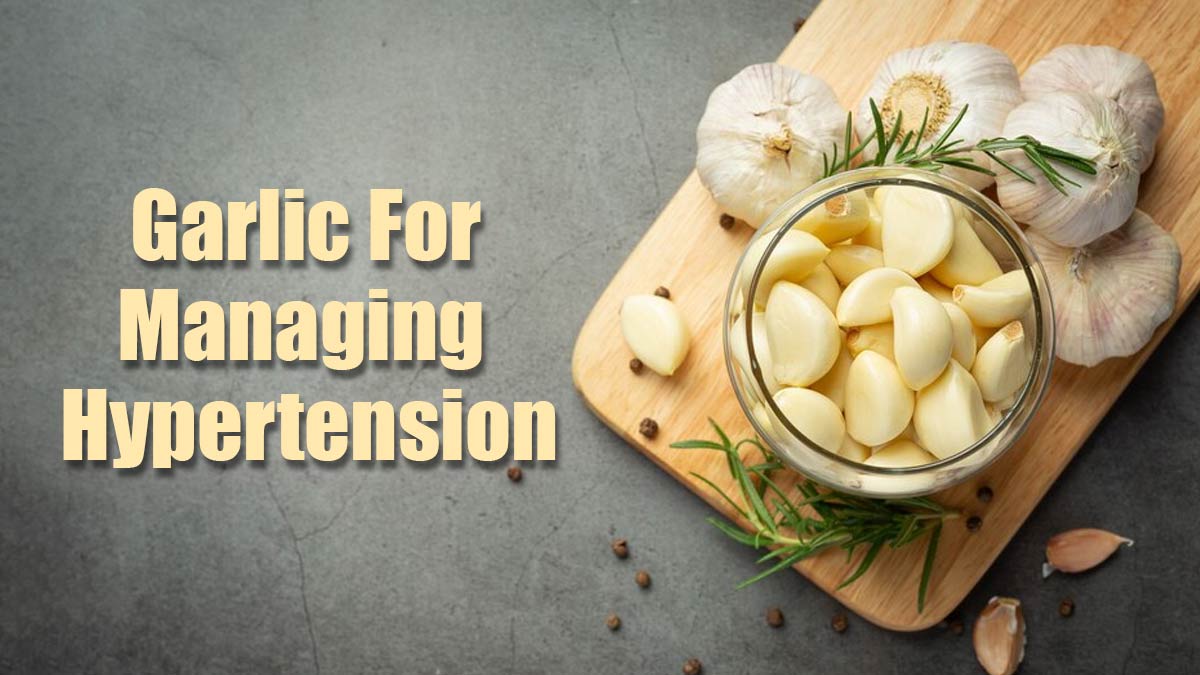
Did you know garlic can help in managing conditions, such as high blood pressure? Also known as hypertension, it is a condition where the force of your blood against your artery walls is consistently too high. This can damage your arteries and lead to serious health problems like heart disease, stroke, and kidney failure. The good news is that garlic with its versatile properties can help in regulating your blood pressure levels.
Table of Content:-

According to a 2017 study, high blood pressure poses a significant public health concern due to its widespread prevalence worldwide. Approximately 7.5 million deaths, constituting 12.8% of total annual deaths globally, are attributed to hypertension. The prevalence of hypertension is expected to rise, with projections estimating 1.56 billion adults affected by the condition by 2025.
Garlic's Effects on Blood Pressure

According to a 2020 study, garlic supplements have demonstrated efficacy in lowering blood pressure among hypertensive individuals, similar to conventional first-line antihypertensive medications.
In the meta-analysis conducted, researchers discovered that garlic supplements were associated with a reduction in blood pressure among individuals with hypertension. This effect was correlated with a decreased risk of cardiovascular events by 16–40%, as indicated by the findings.
Also Read: Anxiety And High Blood Pressure: Expert Explains Their Connection And Management Measures
Here's how garlic helps in managing your blood pressure levels:
Vasodilation
Garlic contains compounds, such as allicin, which have been shown to promote vasodilation or the widening of blood vessels. This can help improve blood flow and reduce pressure on the arterial walls, resulting in lower blood pressure readings.
Antioxidant Properties
Garlic is rich in antioxidants, which help combat oxidative stress and inflammation in the body. By reducing oxidative damage to the blood vessels, garlic may help lower blood pressure and protect against cardiovascular disease.
Antiplatelet Activity
Garlic has antiplatelet effects, which can help prevent blood clot formation and improve blood circulation. It may also contribute to a reduction in blood pressure and clot-related complications.
Best Ways to Consume Garlic for Managing Blood Pressure
While garlic supplements are available in various forms, including capsules and extracts, consuming fresh garlic as part of your diet may offer additional health benefits. Here are some effective ways to add garlic into your daily routine for blood pressure management:
.jpg)
Raw Garlic
Eating raw garlic cloves is one of the most potent ways to reap its cardiovascular benefits. Simply peel and crush a clove of garlic, then let it sit for a few minutes to activate its beneficial compounds before consuming it. You can eat it on its own or mix it into foods like salads, dressings, or dips for added flavour and health benefits.
Garlic Supplements
If you find the taste of raw garlic too strong, you can opt for garlic supplements in the form of capsules or tablets. You can even look for supplements standardised to contain allicin, the active compound in garlic responsible for its medicinal properties.
Also Read: Ashwagandha For High Blood Pressure: How To Consume It, As Per Expert
Cooked Garlic
Cooking garlic does not diminish its health benefits significantly, so feel free to include it in your favourite recipes. Whether sautéed, roasted, or added to soups, stews, and sauces, cooked garlic adds depth of flavour and nutritional value to dishes while potentially helping to manage blood pressure.
Garlic Oil
Garlic-infused oil is another convenient way to incorporate garlic into your diet. Use it for cooking or drizzle it over salads, vegetables, or bread for a flavorful and heart-healthy boost. Alternatively, you can make your garlic oil by infusing olive or vegetable oil with fresh garlic cloves.
Precautions and Considerations
While garlic is generally safe for most people when consumed in moderate amounts as part of a balanced diet, it may interact with certain medications, including blood thinners and anticoagulants. If you're taking medication or have a medical condition, consult with your healthcare provider before incorporating garlic supplements into your regimen.
Additionally, some individuals may experience gastrointestinal discomfort or allergic reactions to garlic. If you develop any adverse symptoms after consuming garlic, discontinue use and seek medical advice.
[Disclaimer: This article contains information for informational purposes only, hence, we advise you to consult your expert before adding anything to your diet, especially if you are dealing with any health issues.]
How we keep this article up to date:
We work with experts and keep a close eye on the latest in health and wellness. Whenever there is a new research or helpful information, we update our articles with accurate and useful advice.
Current Version